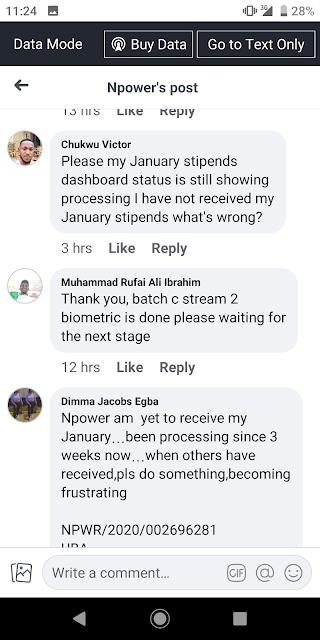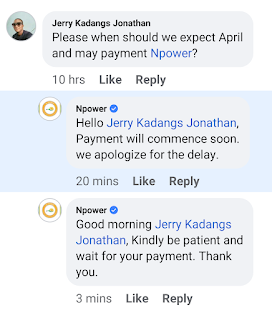Dr. Betta Edu Minister In Charge Of Npower Explains Why She Approved Payment Of ₦585,198,500
According to Npower, the end is yet to be unfolded in the alleged misappropriation of funds in the Federal Ministry of Humanitarian Affairs and Poverty Alleviation the ministry in charge of Npower, as a document has surfaced that the Minister in charge of Npower, Dr. Betta Edu allegedly transfered ₦585,198,500 into a personal account.
According to a document signed by Dr. Betta Edu the minister in charge of Npower, that has now gone viral all over the cyberspace, this document showed how the minister in charge of Npower directed the Accountant-General of the Federation, to transfer ₦585,198,500 to a private account in the person of Oniyelu Bridget.
According to Npower, the viral document also showed that the payment of the ₦585.1 million grant, meant for the poor and vulnerable persons in Akwa Ibom, Cross River, Ogun and Lagos states, was made into Oniyelu’s private account.
In response to this development, the Special Assistant on Media and Publicity to the Minister in charge of Npower, Rasheed Zubair said ₦585,198 million payment for the poor and vulnerable groups was approved and followed due process.
The Special Assistant on Media and Publicity to the Minister in charge of Npower, Rasheed Zubair stated that the payment of the grant to the private account of Oniyelu Bridget, was because the fellow currently serves as the Project Accountant of Grants for Vulnerable Groups.
The Special Assistant on Media and Publicity to the Minister in charge of Npower, Rasheed Zubair explained that the payment of the ₦585,198 million grant was meant for the poor and vulnerable groups in Akwa Ibom, Cross River, Ogun and Lagos states.
According to the Special Assistant on Media and Publicity to the Minister in charge of Npower, Rasheed Zubair “For the avoidance, the said ₦585,198 million was approved, and it is meant to implement grants to the poor and vulnerable groups in Akwa Ibom, Cross River, Ogun, and Lagos states."
“We must note that the Grant For Vulnerable Groups (GVG) was first launched in Kogi State, where recipients of this grants testified publicly. Akwa Ibom and Cross River followed in December 2023. Kogi already happened in November, and other states will kick off in the coming weeks."
“The general public is invited to note that the Renewed Hope Grant for Vulnerable Groups is one of the social intervention schemes of the Federal Government, which the Ministry of Humanitarian Affairs and Poverty Alleviation the ministry in charge of Npower is implementing."
“Oniyelu Bridget is the Project Accountant for Grants For Vulnerable Groups (GVG) from the Department of Finance, and it is legal in civil service for a staff, the project accountant, to be paid and use the same funds legally and retire the same with all receipts and evidence after the project or programme is concluded."
According to Npower, this lattest development has made Nigerian youths online to raise eyebrows as Nigerian youths wondered why a large amount of the Federal Government’s fund would be paid to an individual’s private account.
A reliable source, gathered that public sector financial regulations of 2009 prohibit the transfer of public funds to the account of a private individual.
Section 713 of the law states, “Personal money shall in no circumstances be paid into a government bank account, nor shall any public money be paid into a private bank account. An officer who pays public money into a private account is deemed to have done so with fraudulent intention.”
Recall that few days ago President Bola Ahmed Tinubu suspended the National Coordinator of the National Social Investment Programme Agency, (the agency in charge of Npower) Ms. Halima Shehu, an agency under Federal Ministry of Humanitarian Affairs and Poverty Alleviation (the ministry in charge of Npower) headed by Dr. Betta Edu over alleged misappropriation of public funds.
This led to the arrest and interrogation of Ms. Halima Shehu by the Economic Financial Crimes Commission (EFCC) over an alleged ₦44 billion fraud, the Economic Financial Crimes Commission (EFCC) was able to trace and freeze ₦30 billion transfered from the National Social Investment Programme Agency's accounts.
In similar vein, a former Minister of the Ministry in charge of Npower, Sadiya Umar-Farouq, was invited by the the Economic Financial Crimes Commission (EFCC) over a financial scandal allegedly carried out through one contractor, in the name of Mr. James Okwete.





Comments
Post a Comment